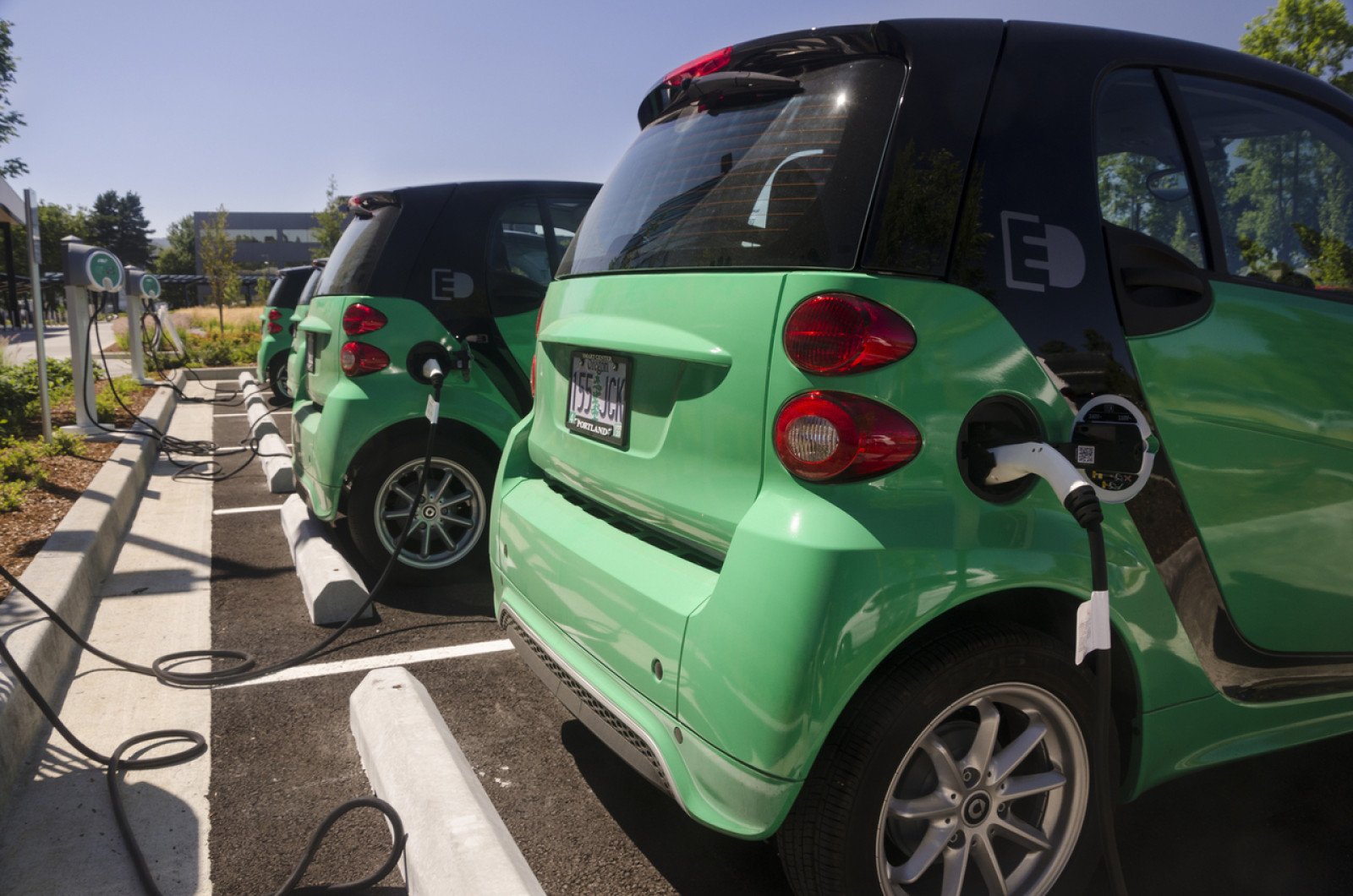Investigations in energy conservation
Look at conservation case studies about topics that are important in our homes and communities.

Overview
Through case study inquiries, students will focus on one of three conservation topics, sharing what they’ve learned with the rest of the class.
Instructions
What you'll need
- Internet access
- One computer or connected device per group
- "Investigations in energy conservation" worksheet
- “Group work evaluation” rubric
- Organize your students into small groups and introduce the three topics:
- EnergGuide® appliance labels
- Smart meters
- Electric vehicles
- Give each group the "Investigations in energy conservation" worksheet and have them select one of the topics.
Investigate
- Groups will need to use their devices or computers to complete their investigations. Have them answer the questions and complete the tasks on their worksheet.
- As they are finishing their investigations, encourage students to decide on the key points they’d like to share with the class.
Plan and present what's been learned
- When the groups have completed their research, gather groups that share a topic to design a presentation. They will need to decide on a maximum of five key points they want to communicate, and plan how to share them with the class.
- Give each topic group a maximum of five minutes to present what they’ve learned.
Modify or extend this activity
- Have your students investigate the strategies and technologies that are helping individuals and communities to conserve energy in other parts of the world.
- The “Energy conservation in action” activity is a great way for your students to explore ways to raise awareness about conservation and social responsibility.
Curriculum Fit
Grade 9 Science
Curricular competencies
Questioning and predicting
- Demonstrate a sustained intellectual curiosity about a scientific topic or problem of personal interest
Processing and analyzing data and information
- Experience and interpret the local environment
- Seek and analyze patterns, trends, and connections in data, including describing relationships between variables and identifying inconsistencies
- Construct, analyze and interpret graphs, models and/or diagrams
Applying and innovating
- Generate or introduce new or refined ideas when problem solving
Communicating
- Express and reflect on a variety of experiences, perspectives and worldviews of place
Assessments
- Note the accuracy of information in the group presentations, as well as the effort that students put in.
- Use the “Group work evaluation” rubric while considering the group collaboration.
Teaching Notes
Smart meters
In Canada, EnerGuide® labels help consumers understand the energy use of major appliances. This allows people to compare the efficiency of different makes and models of appliance.
In the past, most utility companies used electromechanical meters to measure the amount of electricity consumed by a household or business. These meters measure the energy used in kilowatt-hours and the utility bills the customer for every kilowatt-hour used. Electromechanical meters only capture the total energy consumption.
For people to make informed decisions about their use of electricity, though, they need specific and real-time information about how much they’re using.
Smart meters accurately measure a household’s energy use throughout the day and periodically transmit the data to utility companies. They can also measure the amount of power a household may produce.
Having this detailed information enables the utility to more effectively manage the supply of energy based on demand, which leads to efficiencies and cost savings. The information also creates opportunities for customers and communities to generate their own power from clean sources, such as solar panels, wind, biomass and geothermal generation, which can be sold back to the utility.
Energy conservation
Energy conservation means using less energy by changing our behaviours. Energy conservation actions have a positive impact on the future. Students will come up with many ideas to save energy. Some Power Smart tips include:
- Turn off unnecessary lights.
- Learn more though this video on "How can we save energy with lighting".
- Use natural light. Open the blinds and turn off the lights.
- Turn off water when washing hands.
- Unplug electronics when not being used.
- Turn down the heat if you can.
Our everyday choices and actions impact the environment. We can make a difference by taking action for a sustainable energy future.








